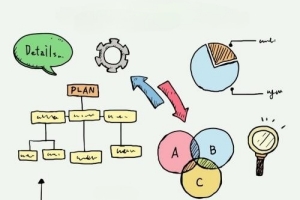Hello and welcome back to the Skills 360 podcast. I’m your host, Tim Simmons, and today, I want to talk about time management and how to delegate effectively.
As a manager, have you ever felt bad about adding tasks to an employee’s workload? Or have you ever thought that it’s easier to do something yourself than explain how to do it? Or do you like the feeling of being indispensable because you’re the only one who knows how to do something?
If any of these things are true, then I’m sorry to say you’re setting yourself up for failure. And you need to check your ego. Great managers on great teams don’t try to do everything themselves. They build their team’s skills and confidence through effective delegation. And this frees up time for more strategic work.
The first step in delegating effectively is figuring out what to delegate. And the key here is to keep the highest-level tasks, and those that can’t be done by anyone else. But routine matters, or important things that are suited to someone else’s skill set, these should be delegated.
Next is figuring out who to delegate to. And that requires you to have a good handle on your team’s skills and goals. Play to their strengths. And give them opportunities to learn new skills that will help them develop in the direction they want. Don’t feel guilty for adding to someone’s workload. Your whole job is to assign work effectively.
Here’s a little example for you: say, you’ve got four direct reports plus an intern that you have to manage. The intern is important, but he is taking up a lot of your time. So, delegate supervision of that intern to the person on your team who aspires to be a manager someday. So you’ve not just freed up more time for yourself, you’re also developing that employee’s management skills.
But a big word of caution: you can’t just say to someone “okay, this is on you now.” You need to clearly define what the task is and your expectations for its completion. Don’t just tell someone “I’m too busy to respond to this RFP that just came in. Can you handle it?” Be clear and provide some instructions. That might sound something like this, “I’d like you to put together a proposal for this RFP by the end of the month. If you can get me a draft by the 20th, that’ll give us a week to review and revise for final approval by the 27th.”
Once you are clear about your expectations, then you need to ensure the person has the right support and resources. For instance, you might say “if you need some examples, you can have a look at the proposal Simon submitted last month.” Or you might say “if you have questions, you can always pop me an email.” And if something needs budget, then by all means give the person budget. In fact, handing over full responsibility, with support and resources, is better than handing over one part of a responsibility. It’s more meaningful to the employee. And it will serve you better in the long run.
If you’ve chosen the right person, explained your expectations clearly, and provided resources and support, then it’s time to back off. We’ve all had managers who are control freaks and can’t stop themselves from micromanaging. This type of person will always struggle with time management.
But backing off doesn’t mean abandoning the person. Check in with them. See how things are going. Ask if there’s any additional support needed. Good managers empower people through coaching. Sometimes that can be done on an ad hoc basis, and sometimes that requires regularly scheduled check-ins. Either way, ask yourself “how can I support this person to be effective,” rather than “how can I make sure this person does things the way I would do them?”
Finally, if the person has succeeded, let them know! Say something like “Really great work on that proposal! You really knocked it out of the park!” That’s all a part of the regular, ongoing feedback that is part of management. But it’s especially important when we’ve asked someone to take on something new. And you can finish off by giving yourself a pat on the back as well, for being an effective delegator.
That’s all for today. So long. And see you again soon!















